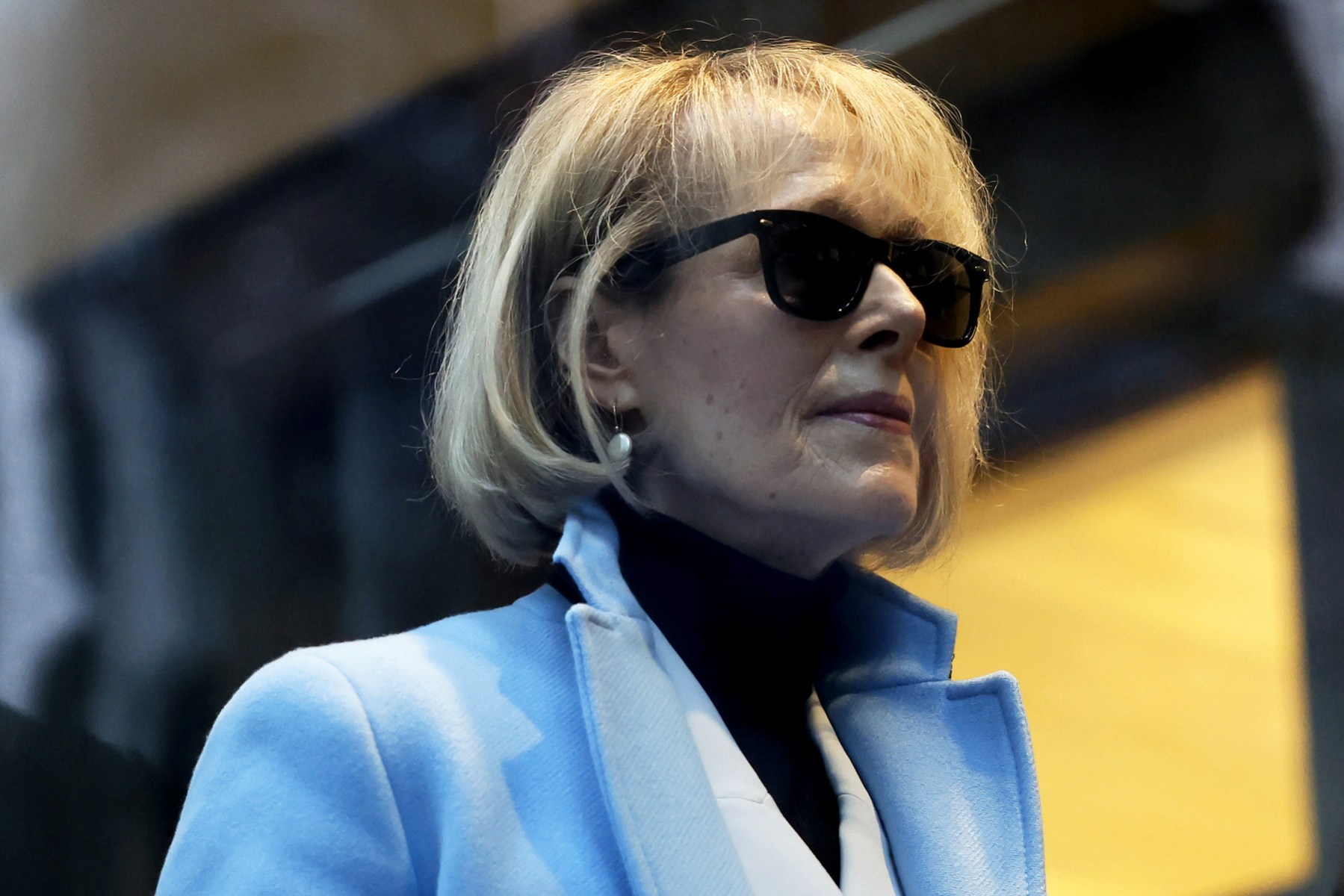A Manhattan jury on Friday ordered former President Donald Trump to pay a total of $83.3 million in damages for defaming writer and former Elle advice columnist E. Jean Carroll, who a jury last year found him liable of sexually assaulting in the 1990s.
The nine-member jury ordered Trump, the current front-runner for the 2024 GOP presidential nomination, to pay $18.3 million in compensatory damages and $65 million in punitive damages to Carroll.
In an excerpt of her memoir published in New York Magazine in 2019, Carroll first alleged Trump raped her in a Bergdorf Goodman dressing room in the late 1990s.
Carroll subsequently sued Trump for sexual battery and defamation in what became two separate but related civil cases. New York’s Adult Survivors Act, which was passed and signed into law in 2022, allowed Carroll and her lawyers to bring the sexual assault case against Trump in November 2022. Two other women who have publicly accused Trump of sexual assault, Natasha Stonyoff and Jessica Leeds, also testified during the first trial.
In May 2023, a federal jury found Trump liable of sexually abusing Carroll and defaming her with posts he made on his Truth Social account in October 2022 in which he denied knowing Carroll, said she was “not my type,” accused her of falsifying her allegation of rape and called the case against him “a con job.” The jury ordered Trump to pay $5 million in damages to Carroll.
Though the jury did not find Trump liable for rape, Judge Lewis A. Kaplan noted in a July court filing that the definition of rape in New York state law is “far narrower” than in other states’ legal codes.
“The finding that Ms. Carroll failed to prove that she was ‘raped’ within the meaning of the New York Penal Law does not mean that she failed to prove that Mr. Trump ‘raped’ her as many people commonly understand the word ‘rape,’” Kaplan wrote.
After the first jury trial, Kaplan entered an additional default judgment in September 2023 finding Trump liable of defamation for statements he made about Carroll in 2019 in which he similarly accused Carroll of lying about the assault, attacked her character and credibility and said he had “absolutely no idea” who she was.
The jury in the current case was only tasked with determining how much Trump was required to pay in damages for those 2019 statements. Carroll and her lawyers sought $24 million in compensatory damages along with punitive damages.
Northwestern University marketing professor Ashlee Humphreys, whom Carroll called as an expert witness on damages, estimated that it would take $7.3 million to $12.1 million to restore Carroll’s reputation. Humphreys was also an expert witness in the defamation damages trial of former Trump lawyer Rudy Giuliani, who was ordered to pay $148 million in damages to two former Georgia election workers.
Carroll, who came to court with private security, testified about the impact of Trump’s statements on her life and reputation. She said she was “more well known and hated by a lot more people.” During closing arguments, Carroll’s lawyer, Roberta Kaplan (no relation to Judge Kaplan), played threatening messages she said Carroll received.
“To have the president of the United States, one of the most powerful persons on earth, calling me a liar for three days and saying I’m a liar 26 times — I counted them — it ended the world that I had been living in,” Carroll testified in court. “And I entered a new world.”
Judge Kaplan also imposed numerous restrictions and conditions on what Trump and his lawyers could and could not say during the trial, including barring them from denying that Trump had sexually assaulted Carroll or implying that she had “any motive” to fabricate the assault.
Trump took the witness stand for just four minutes on Thursday before Judge Kaplan cut him off for saying he considered Carroll’s claims to be “false accusations.” The judge instructed the jury to disregard everything Trump said after. Trump continued to attack Carroll on Truth Social throughout the trial and during jury selection.
Judge Kaplan also admonished both Trump and his lawyer, Alina Habba, at multiple points throughout the trial for speaking within earshot of the jury or contesting rulings. On the second day of the trial, the judge threatened to remove Trump from the courtroom.
And on Friday, Kaplan warned Habba she was “on the verge of spending some time in the lockup” for continuing to dispute a ruling, instructing her to “sit down.”
Trump also walked out of court on Friday as Kaplan, Carroll’s lawyer, said in her closing arguments that Trump “acts as if these rules or law just don’t apply to him,” and didn’t respect the last jury verdict “not even for 24 hours” before continuing to attack Carroll on social media.
“The record will reflect that Mr. Trump just rose and walked out of the courtroom,” Judge Kaplan said.
The verdict underscores the myriad legal issues facing Trump and his treatment of women during a critical stretch of the GOP presidential primary.
He emerged victorious in both Iowa’s Republican caucus on January 15 and the New Hampshire primary on Tuesday. Gov. Ron DeSantis’ departure from the race left Trump in a two-person contest with former U.N. Ambassador Nikki Haley.
Trump faces 91 criminal charges across four separate federal and state cases in addition to civil lawsuits. In entrance polls from the Iowa caucuses, two-thirds of Republican caucusgoers said they believed Trump was qualified to be president if he were convicted of a crime. Of those caucusgoers, nearly three-fourths said they caucused for Trump.






